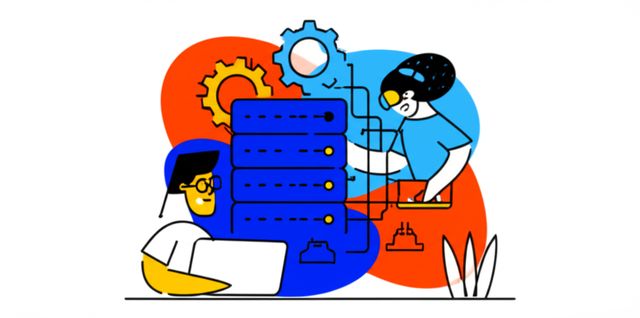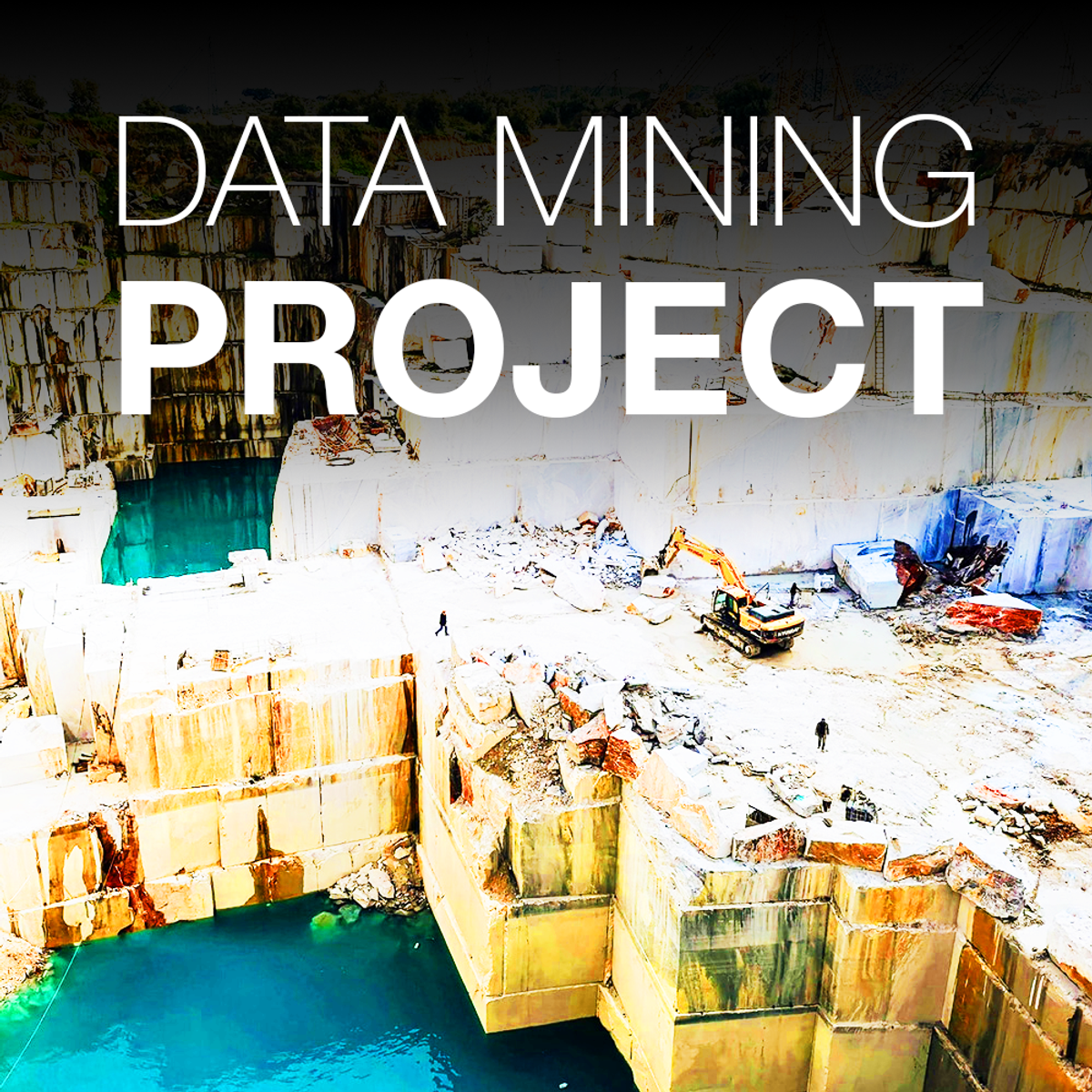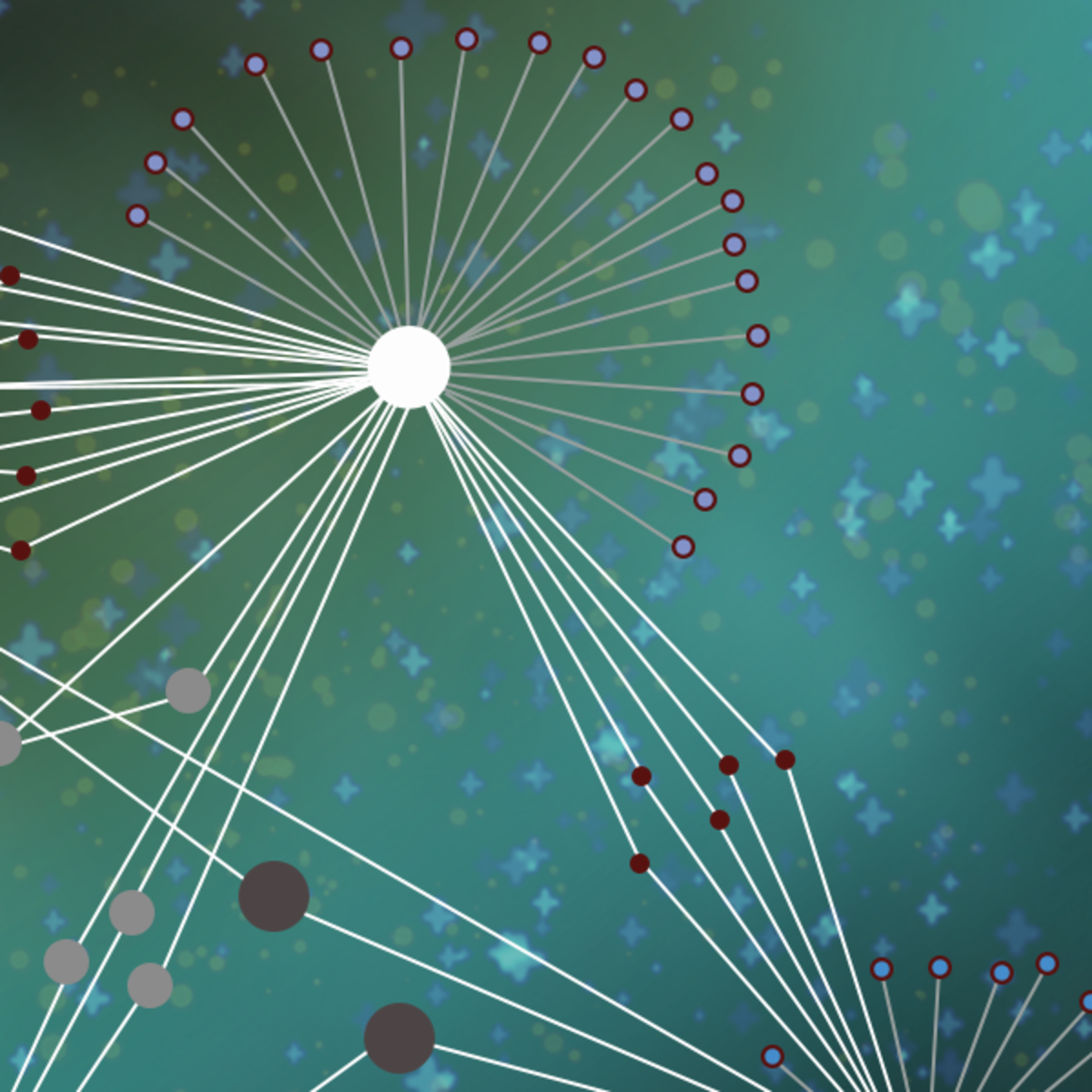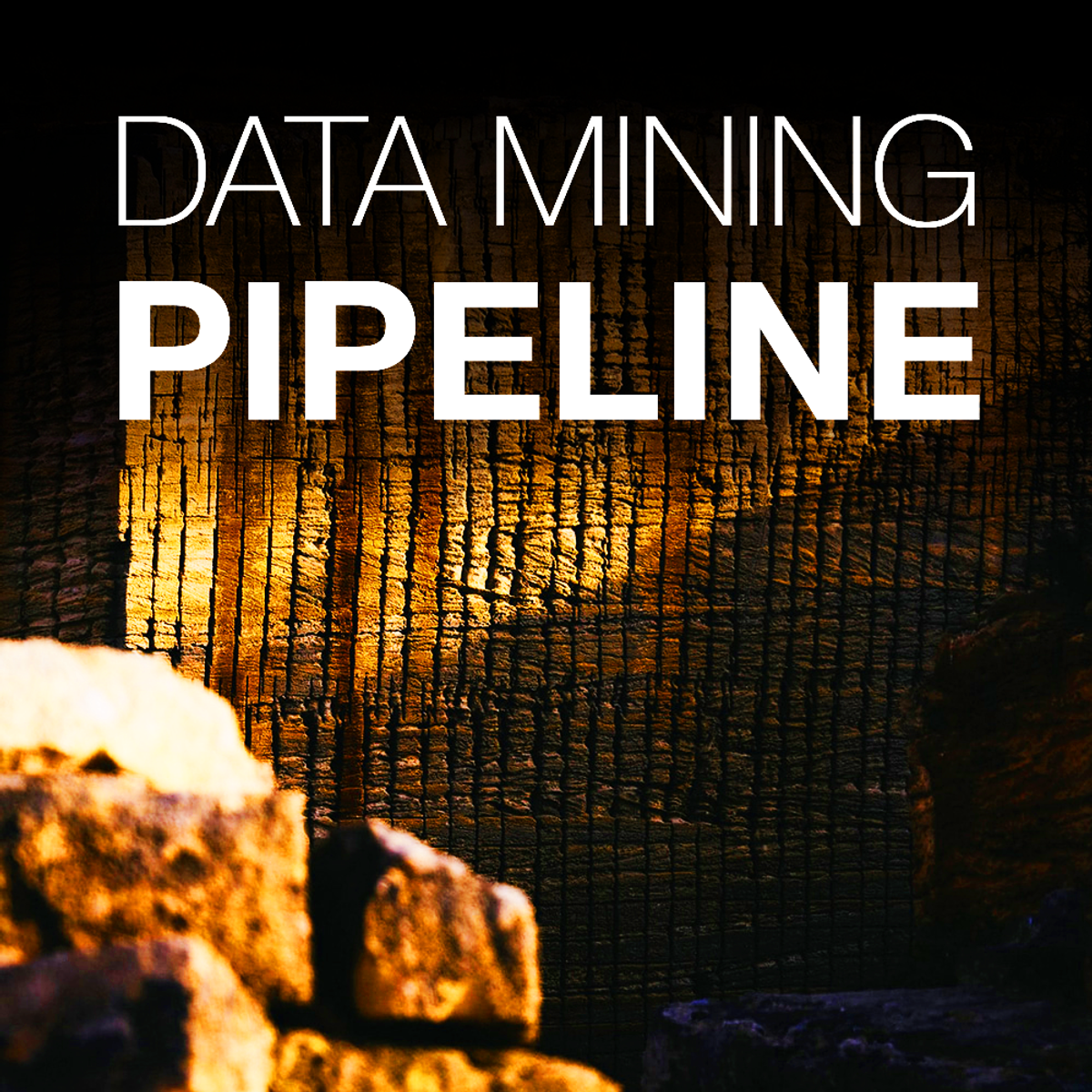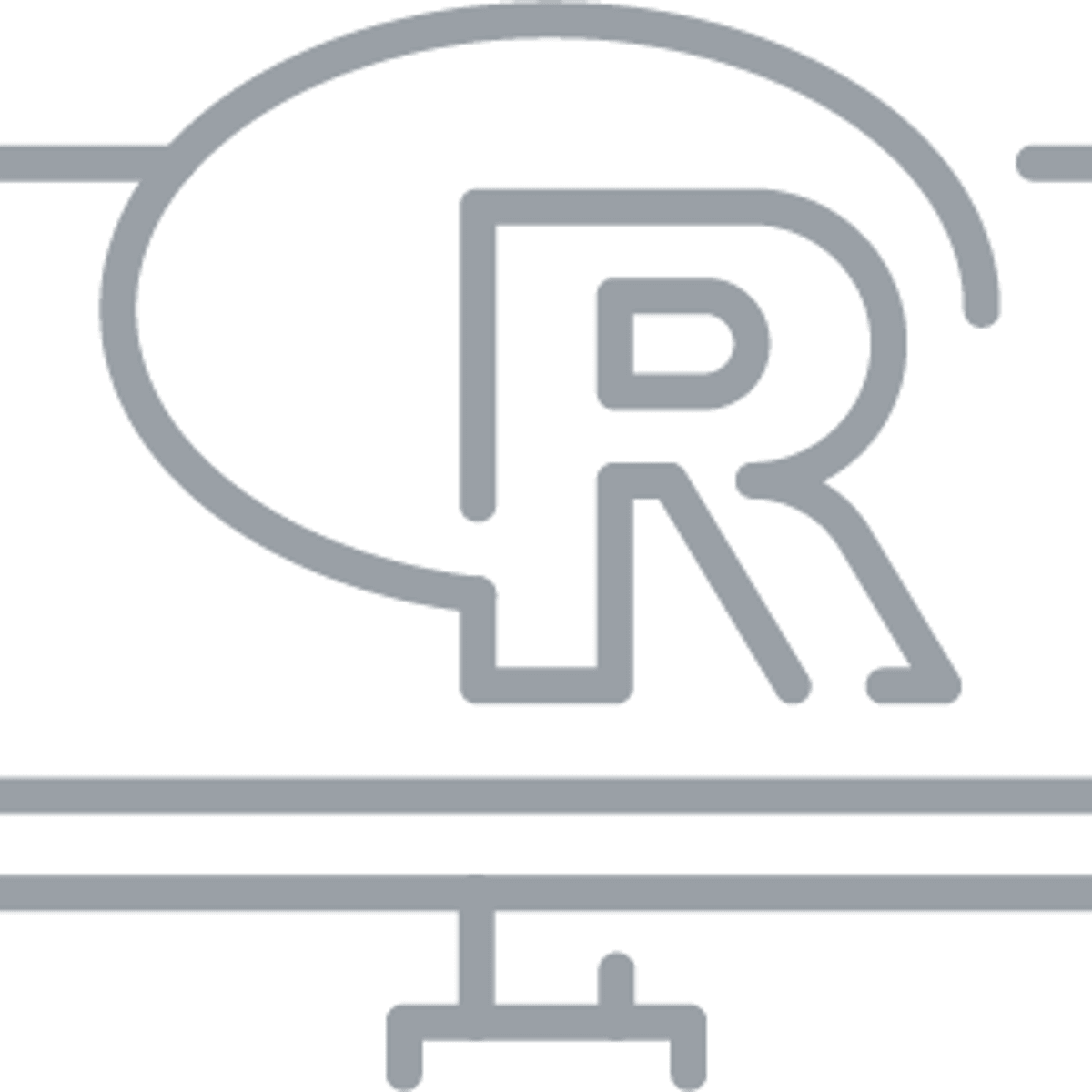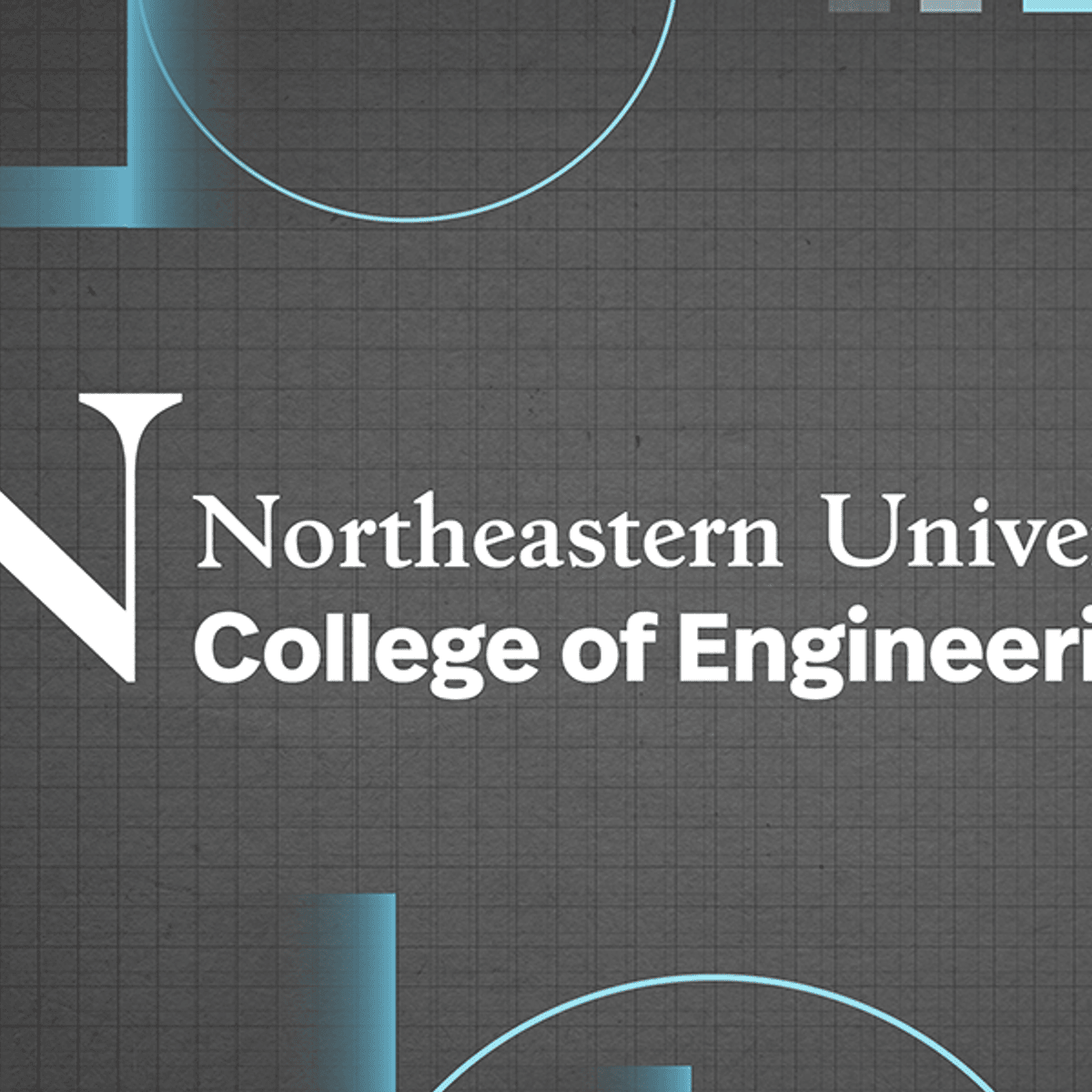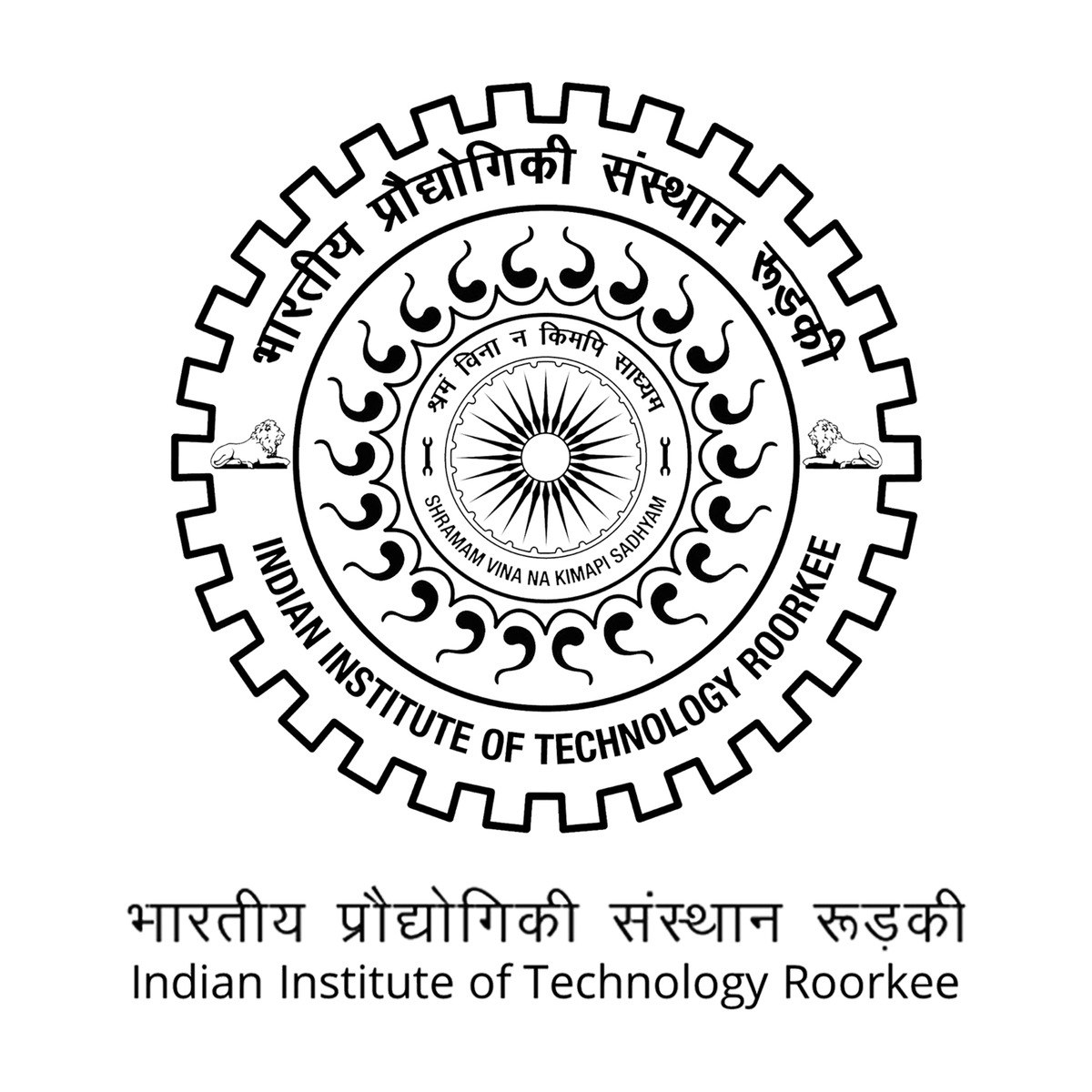Data Mining Engineer
Navigating the World of Data Mining Engineering
A Data Mining Engineer is a professional who designs and implements systems to extract valuable knowledge and insights from large, complex datasets. This role sits at the intersection of software engineering, statistics, and machine learning, requiring a unique blend of skills to transform raw data into actionable intelligence. For those intrigued by the power of data and the challenge of uncovering hidden patterns, a career as a Data Mining Engineer can be both intellectually stimulating and highly impactful.
Working as a Data Mining Engineer offers the excitement of solving intricate puzzles that can lead to significant breakthroughs or strategic advantages for organizations. Imagine developing an algorithm that detects fraudulent transactions with unprecedented accuracy, or building a system that helps doctors diagnose diseases earlier. The ability to influence decision-making across various sectors, from healthcare and finance to retail and technology, makes this career path particularly engaging for individuals who are driven by curiosity and a desire to make a tangible difference.
What Exactly Does a Data Mining Engineer Do?
Understanding the day-to-day life and overarching responsibilities of a Data Mining Engineer can help you gauge if this path aligns with your aspirations. It's a multifaceted role that goes beyond just sifting through data; it involves building the very infrastructure and methodologies for intelligent data exploration.
Defining the Role and Its Boundaries
A Data Mining Engineer focuses on the practical application of data mining techniques to solve business problems. This involves designing and developing the software and systems that collect, process, and analyze vast amounts of data. Their work enables organizations to discover trends, patterns, and correlations that might not be apparent through simpler analysis methods. Unlike a Data Analyst who might primarily use existing tools to interpret data, or a Data Scientist who might focus more on research and statistical modeling, the Data Mining Engineer is often more involved in the engineering and deployment of scalable data mining solutions.
They are the architects and builders of the data mining pipeline, ensuring that data flows efficiently from its source to the point where insights are generated. This can involve tasks like setting up data warehouses, developing algorithms for data processing, and creating automated systems for continuous data analysis. Their expertise ensures that the data is not only analyzed but is also accessible and usable for decision-makers. For those new to the field, it's helpful to think of Data Mining Engineers as specialists who create the tools and pathways for others to effectively navigate and understand complex data landscapes.
This introduction to the core concepts of data mining can provide a solid starting point for anyone curious about the field.
A Glimpse into Daily Tasks and Key Responsibilities
The daily routine of a Data Mining Engineer can be dynamic and varied. Common tasks include developing and implementing data collection systems, preprocessing and cleaning data to ensure its quality and suitability for analysis, and designing and applying machine learning algorithms. They also spend time evaluating the performance of data mining models and refining them for better accuracy and efficiency. Collaboration is a key aspect, as they often work closely with data scientists, software developers, and business stakeholders to understand requirements and deliver solutions.
Key responsibilities often involve writing and optimizing code, typically in languages like Python or R, and working with databases (both SQL and NoSQL). They might also be responsible for setting up and managing big data infrastructure using frameworks such as Hadoop or Spark. Furthermore, Data Mining Engineers must stay updated with the latest advancements in data mining techniques and technologies to ensure their approaches remain cutting-edge. A significant part of their role is also to document their processes and findings, making complex data insights understandable to a non-technical audience.
Embarking on a project that mirrors real-world data mining challenges can solidify understanding and build practical skills.
For a deeper dive into the methodologies, this comprehensive text is highly recommended.
The Impact of Data Mining Engineering on Modern Business
In today's data-driven world, Data Mining Engineers play a crucial role in helping businesses gain a competitive edge. By uncovering valuable insights from customer data, operational data, and market trends, they empower organizations to make more informed strategic decisions. For example, in the retail sector, data mining can identify customer segments, predict purchasing behavior, and optimize pricing and promotions. In finance, it's instrumental in fraud detection, risk assessment, and algorithmic trading.
The ability to extract meaningful patterns from complex datasets allows companies to improve efficiency, personalize customer experiences, develop new products and services, and mitigate risks. As businesses continue to generate and collect unprecedented volumes of data, the expertise of Data Mining Engineers becomes increasingly vital for transforming this raw information into a strategic asset. Their work directly contributes to innovation and growth across a multitude of industries.
Understanding the entire pipeline, from data collection to insight generation, is fundamental. This course offers a comprehensive overview.
Essential Technical Proficiencies for Success
To excel as a Data Mining Engineer, a robust foundation in several technical areas is indispensable. This career demands not just theoretical knowledge but also the practical ability to apply these skills to real-world data challenges. Mastering these competencies will pave the way for a successful and impactful career.
Mastering Programming Languages: Python, R, and SQL
Proficiency in programming is fundamental for a Data Mining Engineer. Python is widely favored in the data science community due to its extensive libraries for data analysis, machine learning (like scikit-learn, TensorFlow, and PyTorch), and data manipulation (like Pandas and NumPy). Its readability and versatility make it an excellent choice for developing complex data mining applications. R is another critical language, particularly valued for its strong statistical computing capabilities and rich ecosystem of packages specifically designed for data analysis and visualization.
Beyond these, SQL (Structured Query Language) is essential for interacting with relational databases. Data Mining Engineers frequently use SQL to extract, transform, and load (ETL) data, as well as to perform complex queries for data retrieval and preliminary analysis. A solid grasp of database concepts and SQL syntax is crucial for efficiently managing and accessing the data that fuels data mining projects. Familiarity with NoSQL databases is also becoming increasingly important as data sources diversify.
For those looking to strengthen their R programming skills for data analysis, this German-language course from Google offers comprehensive training. While in German, the underlying concepts of R are universally applicable.
This resource can help you get started with SQL specifically for projects.
To round out your programming skills, consider these books for a deeper understanding. "Python Data Mining Quick Start Guide" offers a practical entry point for Python enthusiasts. For R users, "Data Mining with R" provides specialized knowledge.
Delving into Machine Learning and Statistical Modeling
Machine learning (ML) and statistical modeling form the intellectual core of data mining. Data Mining Engineers must have a strong understanding of various ML algorithms, including supervised learning techniques (like regression and classification), unsupervised learning methods (such as clustering and dimensionality reduction), and potentially reinforcement learning concepts. They need to know how these algorithms work, their assumptions, their strengths and weaknesses, and when to apply them.
Statistical modeling provides the theoretical underpinnings for many data mining techniques. A solid grasp of concepts like probability, hypothesis testing, regression analysis, and time series analysis is vital for interpreting data correctly and building robust models. This knowledge allows engineers to not only apply algorithms but also to critically evaluate their outputs, understand uncertainty, and make sound inferences from the data. The ability to translate business problems into machine learning tasks and then interpret the results in a business context is a hallmark of a skilled Data Mining Engineer.
These courses provide excellent introductions and deeper explorations into machine learning and its subfields.
For foundational knowledge in statistical learning and pattern recognition, these books are considered classics in the field.
The Art of Data Preprocessing and Cleaning
Real-world data is often messy, incomplete, inconsistent, and noisy. Data preprocessing and cleaning are therefore critical steps in the data mining pipeline, often consuming a significant portion of a project's time. Data Mining Engineers must be adept at techniques for handling missing values, smoothing noisy data, identifying and removing outliers, and transforming data into a suitable format for analysis. This might involve normalization, aggregation, and feature engineering – the process of creating new input features from existing raw data to improve model performance.
Effective data preprocessing ensures the reliability and accuracy of the subsequent data mining results. Without meticulous cleaning and preparation, even the most sophisticated algorithms can produce misleading or incorrect insights. This "garbage in, garbage out" principle underscores the importance of this skill set. A Data Mining Engineer’s ability to skillfully prepare data is as crucial as their ability to apply advanced analytical techniques.
This book specifically addresses the crucial stage of preparing data for mining.
Understanding the complete lifecycle, including preprocessing, is vital.
Navigating Big Data Frameworks: Hadoop and Spark
As datasets grow in volume, velocity, and variety, proficiency in big data frameworks like Apache Hadoop and Apache Spark becomes increasingly important. Hadoop provides a distributed storage and processing framework (HDFS and MapReduce) capable of handling massive datasets across clusters of computers. Spark, known for its speed and ease of use, offers powerful capabilities for in-memory data processing, real-time analytics, machine learning, and graph processing.
Data Mining Engineers working with large-scale data often use these frameworks to build scalable and efficient data pipelines. Understanding the architecture of these systems, how to write distributed processing jobs, and how to optimize performance in a distributed environment are key skills. Familiarity with related ecosystem tools, such as Hive for data warehousing on Hadoop or Kafka for real-time data streaming, can also be highly beneficial.
This course touches on handling financial mainframe data, which often involves big data considerations.
For tackling massive datasets, these books offer valuable insights.
Essential Tools and Technologies
Beyond foundational skills, a Data Mining Engineer must be proficient with a variety of tools and technologies that enable the efficient extraction, processing, analysis, and visualization of data. Familiarity with these industry-standard tools can significantly enhance productivity and the ability to deliver impactful results.
Leveraging Popular Data Mining Software
Several specialized software platforms are designed to streamline the data mining process. Tools like Weka, an open-source machine learning software, offer a collection of algorithms for data analysis and predictive modeling. It provides a graphical user interface that allows users to apply these algorithms without extensive programming. Another popular tool is RapidMiner, a comprehensive data science platform that supports all steps of the data mining lifecycle, from data preparation and modeling to deployment and operationalization.
These tools often include functionalities for data import, preprocessing, model building, evaluation, and visualization. While programming skills are crucial, these platforms can accelerate development and allow for rapid prototyping of data mining solutions. Understanding their capabilities and limitations helps engineers choose the right tool for the task at hand. OpenCourser features a variety of courses, and using the software tools category can help you find specific training on these and other relevant applications.
This course offers an introduction to using the Orange Data Mining platform for a specific task like Twitter API mining.
Managing Data with Database Systems: SQL and NoSQL
Data is the lifeblood of data mining, and database systems are where this data typically resides. Proficiency in SQL databases (like PostgreSQL, MySQL, SQL Server, Oracle) is essential for structured data storage, retrieval, and manipulation. Data Mining Engineers use SQL extensively to query data, join tables, aggregate information, and prepare datasets for analysis.
In addition to traditional relational databases, NoSQL databases (such as MongoDB, Cassandra, Redis) are increasingly used to handle unstructured or semi-structured data, large volumes of data, and high-velocity data streams. Understanding the different types of NoSQL databases (document stores, key-value stores, column-family stores, graph databases) and their respective use cases is important. A Data Mining Engineer should be comfortable working with various database technologies to effectively access and manage diverse data sources.
This practical course delves into data mining techniques, which invariably involves interacting with databases.
Communicating Insights with Visualization Tools
Once insights are extracted from data, they need to be communicated effectively to stakeholders, many of whom may not have a technical background. Data visualization tools like Tableau and Microsoft Power BI play a crucial role in this process. These tools allow engineers to create interactive dashboards, charts, graphs, and maps that clearly illustrate patterns, trends, and anomalies in the data.
Effective visualization can make complex data more accessible and understandable, facilitating better decision-making. Data Mining Engineers should be skilled in choosing the right types of visualizations for different kinds of data and insights. The ability to tell a compelling story with data through visualization is a valuable asset in this field.
This course introduces SAS Visual Analytics, a powerful tool for exploring data and creating visualizations.
Harnessing the Power of Cloud Platforms
Cloud platforms such as Amazon Web Services (AWS), Microsoft Azure, and Google Cloud Platform (GCP) offer a wide array of services for data storage, processing, and machine learning. Data Mining Engineers increasingly leverage these platforms to build scalable and cost-effective data mining solutions. Cloud services provide on-demand computing resources, managed database services, big data processing tools (like Amazon EMR or Google Dataflow), and machine learning platforms (like Amazon SageMaker, Azure Machine Learning, or Google AI Platform).
Familiarity with cloud computing concepts and experience with one or more major cloud providers are becoming essential skills. This includes understanding how to provision and manage cloud resources, deploy data pipelines, and utilize cloud-based machine learning services. The scalability and flexibility of cloud platforms enable organizations to tackle larger and more complex data mining projects than ever before.
This course provides a hands-on lab experience using Google Cloud for a financial data task.
Charting Your Educational Journey
Embarking on a career as a Data Mining Engineer requires a solid educational foundation, whether through formal academic programs or dedicated self-study. Understanding the various pathways can help aspiring engineers make informed decisions about their learning journey. Many resources, including a vast array of online courses in Data Science, are available to support this pursuit.
Exploring Relevant Academic Degrees
A bachelor's degree in a quantitative field is typically the starting point for a Data Mining Engineer. Common choices include Computer Science, Data Science, Statistics, Mathematics, or a related engineering discipline. These programs provide foundational knowledge in programming, algorithms, data structures, calculus, linear algebra, and probability – all of which are crucial for data mining.
Many professionals in the field also hold advanced degrees, such as a Master's or Ph.D. A Master's degree in Data Science, Computer Science with a specialization in machine learning or AI, or Statistics can provide more specialized knowledge and practical skills. A Ph.D. is often pursued by those interested in research-oriented roles or developing novel data mining algorithms, though it's not always a strict requirement for many industry positions. The key is to acquire a strong analytical and computational skillset.
These courses cover fundamental and advanced data mining methods, often part of university curricula.
These books are often used as textbooks or supplementary reading in academic programs.
The Value of Certifications and Online Courses
Online courses and professional certifications offer flexible and accessible ways to acquire data mining skills or supplement formal education. Platforms like Coursera, edX, Udacity, and others host a wealth of courses covering programming languages (Python, R, SQL), machine learning, big data technologies, and specific data mining techniques. These courses often include hands-on projects, allowing learners to build a portfolio of work. OpenCourser is an excellent resource for finding and comparing these options, and our Learner's Guide provides tips on how to make the most of online learning.
Certifications from reputable organizations or technology vendors (e.g., Google Professional Data Engineer, AWS Certified Big Data - Specialty) can demonstrate specific competencies to potential employers. While certifications alone may not replace a degree or substantial experience, they can be valuable for showcasing up-to-date knowledge and a commitment to continuous learning, especially for those transitioning from other fields. Building a strong foundation through well-chosen online courses can be a very effective strategy.
Here are some online courses that cover key aspects of data mining.
Considering PhD Research Areas for Deeper Specialization
For individuals passionate about pushing the boundaries of data mining, a Ph.D. can open doors to specialized research and development roles. Relevant research areas might include the optimization of existing data mining algorithms for speed and scalability, the development of new algorithms for handling complex data types (like graphs or streams), or advancing techniques in areas like deep learning or reinforcement learning for data mining applications. Another significant area of research is AI ethics, focusing on fairness, accountability, and transparency in data mining algorithms, which is crucial as these technologies become more pervasive.
Other Ph.D. research could focus on privacy-preserving data mining, which aims to extract insights while protecting sensitive individual information. Research might also explore the application of data mining to novel scientific domains or complex societal challenges. A doctoral program provides rigorous training in research methodologies and allows for deep specialization in a chosen niche within the broader field of data mining.
These topics are often at the forefront of data mining research.
Weighing Self-Taught Paths Against Formal Education
It is possible to become a Data Mining Engineer through a self-taught path, especially if one has a strong aptitude for quantitative subjects and programming. The abundance of high-quality online courses, open-source tools, and publicly available datasets makes self-learning more feasible than ever. A dedicated self-learner can acquire the necessary skills in programming, statistics, machine learning, and big data technologies. Building a strong portfolio of projects is crucial for self-taught individuals to demonstrate their capabilities to employers.
However, formal education often provides a more structured learning environment, access to experienced faculty, networking opportunities, and a recognized credential, which can be advantageous in the job market. Formal programs typically offer a broader theoretical foundation. The choice between a self-taught path and formal education often depends on individual learning styles, existing background, career goals, and available resources. Many successful Data Mining Engineers combine elements of both, using formal education as a base and continuously updating their skills through online learning and self-study throughout their careers.
For those charting their own course, online platforms provide invaluable resources. These courses can help build a strong, self-directed curriculum.
Foundational books are also key for self-study.
Navigating Your Career Path
The journey of a Data Mining Engineer offers diverse opportunities for growth and advancement. Understanding the typical career trajectory, from entry-level positions to senior leadership roles, can help aspiring professionals plan their development and set realistic goals. The field is dynamic, with continuous learning being a key component of long-term success.
Starting Points: Entry-Level Roles
For those beginning their careers, entry-level positions often serve as a gateway into the world of data mining. Common titles include Data Analyst, Junior Data Engineer, or Junior Data Scientist. In these roles, individuals typically work under the guidance of more senior engineers or scientists. Responsibilities might include data collection, cleaning, and preprocessing, performing exploratory data analysis, assisting in the development and testing of data mining models, and generating reports.
These initial roles provide invaluable hands-on experience with real-world datasets and data mining tools. They offer opportunities to apply theoretical knowledge to practical problems and to learn the intricacies of working within a team and an organizational context. Building a strong foundation in programming, database querying, and basic statistical analysis is crucial for success at this stage. This is also a time to develop strong communication skills for explaining findings to colleagues.
This introductory course can be beneficial for those starting out.
Advancing to Mid-Career Positions
With a few years of experience, Data Mining Engineers can progress to mid-career roles such as Senior Data Mining Engineer, Data Mining Specialist, or Team Lead. At this stage, professionals are expected to have a deeper understanding of data mining algorithms and techniques, greater proficiency in programming and system design, and the ability to lead projects independently. They might be responsible for designing and implementing more complex data mining solutions, mentoring junior team members, and contributing to strategic decisions related to data infrastructure and analytics.
Mid-career roles often require strong problem-solving skills and the ability to tackle ambiguous challenges. Engineers at this level may specialize in particular areas, such as natural language processing, computer vision, or specific industry domains. Continuous learning remains important, as the field evolves rapidly with new tools and techniques. Strong project management and communication skills are also essential for coordinating efforts and presenting results to both technical and non-technical stakeholders.
Courses that delve into specific methods or projects are valuable at this stage.
This comprehensive book is a great reference for seasoned professionals.
Reaching Advanced and Leadership Roles
Experienced Data Mining Engineers with a proven track record can advance to senior leadership positions like Data Architect, Principal Data Scientist, Manager of Data Science, or even Chief Data Officer (CDO). These roles involve a greater emphasis on strategy, vision, and team leadership. Individuals in these positions are often responsible for setting the overall data strategy for an organization, leading large teams of engineers and scientists, overseeing the development of innovative data products, and driving the adoption of cutting-edge technologies.
Advanced roles require not only deep technical expertise but also strong business acumen, leadership qualities, and excellent communication skills. Professionals at this level often engage with executive leadership to align data initiatives with business goals and demonstrate the value of data mining efforts. They play a crucial role in fostering a data-driven culture within the organization and staying ahead of industry trends. The path to these roles often involves a combination of technical excellence, continuous learning, and demonstrated impact on business outcomes.
Cultivating Skills for Promotion and Growth
Advancement in a data mining career hinges on a combination of deepening technical skills and broadening professional competencies. Technically, this means continuously learning new algorithms, programming languages, and tools, as well as gaining expertise in areas like cloud computing, big data technologies, and MLOps (Machine Learning Operations). Specializing in a high-demand area or a specific industry can also create opportunities for growth.
Beyond technical skills, developing soft skills is equally important. Strong communication skills are needed to explain complex findings to diverse audiences. Problem-solving abilities are crucial for tackling challenging data problems. Leadership and project management skills become essential as one moves into more senior roles. Demonstrating initiative, a proactive approach to learning, and the ability to deliver tangible business value through data mining projects are key factors that contribute to career progression.
Consider these courses to sharpen specific, advanced skill sets.
Exploring related fields can also broaden your skillset.
Where Data Mining Makes an Impact: Industry Applications
Data Mining Engineering is not confined to a single sector; its principles and techniques find valuable applications across a wide array of industries. By transforming raw data into actionable insights, Data Mining Engineers help organizations solve complex problems, innovate, and improve decision-making. The versatility of this field means that professionals can often find niches that align with their personal interests and passions.
Transforming Healthcare with Data Insights
In the healthcare sector, data mining plays a pivotal role in improving patient outcomes and operational efficiency. Data Mining Engineers develop systems to analyze patient records, medical imaging data, genomic sequences, and public health information. These analyses can lead to earlier disease detection, personalized treatment plans, prediction of patient risk factors, and optimization of hospital workflows. For instance, data mining can identify patterns that predict disease outbreaks or help in understanding the efficacy of different treatments across various patient populations. The ethical handling of sensitive patient data is, of course, paramount in this field.
By applying advanced analytical techniques, engineers in healthcare can contribute to breakthroughs in medical research, drug discovery, and overall public health strategies. The ability to process and interpret vast amounts of clinical data is transforming how healthcare is delivered and managed. If you're interested in this specialization, you might explore courses on Health & Medicine data analytics.
This course focuses on data mining within clinical databases, a crucial skill in healthcare applications.
This book explores analytics in healthcare management.
Securing Finance Through Anomaly and Fraud Detection
The financial industry relies heavily on data mining for risk management, fraud detection, and customer relationship management. Data Mining Engineers build models to identify suspicious transaction patterns that may indicate fraudulent activity, such as credit card fraud or money laundering. They also develop systems for credit scoring, assessing loan applications, and predicting market fluctuations. Customer data is analyzed to understand behavior, segment customers for targeted marketing, and predict churn.
Algorithmic trading and portfolio optimization are other areas where data mining provides a significant advantage. By analyzing historical market data and real-time information, engineers can help develop strategies to maximize returns and minimize risks. The speed and accuracy of these data-driven insights are critical in the fast-paced financial world. The Finance & Economics category on OpenCourser lists many relevant courses.
This course involves offloading and analyzing financial records, relevant to the finance industry.
Personalizing Experiences in the Retail Sector
Retail and e-commerce companies leverage data mining extensively to understand customer preferences, optimize supply chains, and personalize shopping experiences. Data Mining Engineers analyze purchase histories, website browsing patterns, demographic data, and social media trends to segment customers, recommend products, and tailor marketing campaigns. This leads to increased sales, improved customer loyalty, and more efficient inventory management.
Techniques like market basket analysis help retailers understand which products are frequently bought together, informing product placement and promotional strategies. Predictive analytics can forecast demand for different items, helping to prevent stockouts or overstocking. The ability to create a highly personalized and relevant experience for each shopper is a key differentiator in the competitive retail landscape.
Understanding customer behavior is central to retail data mining.
Powering AI-Driven Industries and Autonomous Systems
Data mining is a foundational element of many AI-driven industries, including the development of autonomous systems like self-driving cars and intelligent robotics. These systems rely on sophisticated algorithms to process vast amounts of sensor data in real-time, enabling them to perceive their environment, make decisions, and act autonomously. Data Mining Engineers contribute by developing the algorithms that allow these systems to learn from data and improve their performance over time.
In fields like natural language processing (NLP) and computer vision, data mining techniques are used to extract meaningful information from text, images, and videos. This enables applications such as virtual assistants, automated translation services, and image recognition software. As AI continues to advance, the role of Data Mining Engineers in building and refining the intelligent systems that power these innovations will only grow in importance. Exploring Artificial Intelligence courses can provide a deeper understanding of this domain.
This course on unsupervised learning is highly relevant for AI applications.
Books on machine learning provide the theoretical backbone for AI-driven systems.
Addressing Challenges and Ethical Dimensions
While the field of Data Mining Engineering offers immense opportunities, it also comes with significant challenges and ethical responsibilities. Navigating these complexities is crucial for building trust and ensuring that data-driven technologies are used responsibly for the benefit of society. Professionals in this field must be cognizant of these issues throughout their work.
Safeguarding Data Privacy and Ensuring Compliance
One of the foremost concerns in data mining is the protection of individual privacy. Data Mining Engineers often work with large datasets that may contain sensitive personal information. It is essential to implement robust security measures and adhere to data privacy regulations such as the General Data Protection Regulation (GDPR) in Europe or other regional data protection laws. This involves techniques like data anonymization, pseudonymization, and ensuring that data collection and usage practices are transparent and consensual.
Engineers must be knowledgeable about the legal and ethical frameworks governing data privacy in their respective jurisdictions and industries. Designing systems with privacy in mind from the outset ("privacy by design") is a key principle. The challenge lies in balancing the desire to extract valuable insights from data with the fundamental right of individuals to control their personal information. Organizations like the Federal Trade Commission in the U.S. provide resources and enforce regulations related to data privacy and security.
This book explores privacy considerations in data mining.
Mitigating Algorithmic Bias and Promoting Fairness
Data mining algorithms learn from the data they are trained on. If this data reflects existing societal biases (e.g., related to race, gender, age, or socioeconomic status), the algorithms can perpetuate and even amplify these biases in their predictions and decisions. This can lead to unfair or discriminatory outcomes in areas such as loan applications, hiring processes, criminal justice, and targeted advertising.
Data Mining Engineers have an ethical responsibility to be aware of potential sources of bias in data and algorithms and to take steps to mitigate them. This includes carefully examining training data, using fairness-aware machine learning techniques, and regularly auditing models for biased outcomes. Ensuring transparency and explainability in how algorithms make decisions is also crucial for identifying and addressing bias. The goal is to build systems that are not only accurate but also fair and equitable.
These topics touch on the broader implications of data analysis.
Dealing with Imperfect Data: Incompleteness and Noise
Real-world data is rarely perfect. It is often incomplete, containing missing values, or noisy, with errors and inconsistencies. Data Mining Engineers spend a significant amount of time on data preprocessing to address these issues. Techniques for handling missing data range from simple imputation methods to more sophisticated statistical approaches. Noise reduction might involve smoothing techniques or outlier detection and removal.
The challenge is to clean and prepare the data in a way that improves the quality of the subsequent analysis without introducing new biases or distorting the underlying patterns. The choices made during data preprocessing can have a significant impact on the final results, so a deep understanding of the data and the potential pitfalls of different cleaning methods is essential. This requires a combination of technical skill and domain expertise.
This course offers a broad overview of the data mining pipeline, which includes data preparation.
This book is dedicated to the crucial step of data preparation.
Considering the Environmental Footprint of Data Operations
The large-scale data processing and storage required for data mining consume significant amounts of energy, contributing to the environmental footprint of data centers. As the volume of data continues to grow exponentially, the energy consumption of the information technology sector is a growing concern. Data Mining Engineers, along with other IT professionals, have a role to play in promoting more sustainable practices.
This can involve designing more efficient algorithms that require less computational power, optimizing data storage and processing workflows to reduce energy use, and supporting the use of renewable energy sources for data centers. While not always a direct part of their daily tasks, an awareness of the environmental impact of their work and a commitment to "green computing" principles can contribute to a more sustainable technological future.
The Global Job Market and Future Vistas
The demand for skilled Data Mining Engineers is robust globally, driven by the increasing reliance of industries on data-driven decision-making. Understanding the job market landscape and future trends can help individuals position themselves for success in this evolving field. The outlook suggests continued growth and the emergence of new specializations.
High-Demand Regions and Tech Hubs
Tech hubs like Silicon Valley in the United States and Bangalore in India have historically been hotspots for data mining and data science talent, and they continue to offer numerous opportunities. However, the demand is not limited to these areas. Major cities across North America, Europe, and Asia are seeing a surge in demand for professionals who can extract value from data. Companies in various sectors, from finance and healthcare to e-commerce and manufacturing, are actively hiring Data Mining Engineers in these regions. The U.S. Bureau of Labor Statistics projects significant growth in data science occupations, which encompass data mining roles, indicating a strong and expanding job market.
The concentration of tech companies, research institutions, and venture capital in these hubs often creates a vibrant ecosystem for innovation and career development. However, opportunities are also increasingly found in other cities and regions as more traditional industries embrace data analytics. According to ZipRecruiter, as of May 2025, the average annual pay for a Data Mining Engineer in the United States is approximately $89,183, though this can vary significantly based on location, experience, and skills, with top earners making well over $127,500.
The Rise of Remote Work and Distributed Teams
The nature of data mining work, which is often computer-based and can be performed collaboratively online, lends itself well to remote work arrangements. The COVID-19 pandemic accelerated the trend towards remote work across many industries, and data mining has been no exception. Many companies now offer remote or hybrid work options, providing greater flexibility for employees and access to a wider talent pool for employers.
Working in distributed teams requires strong communication skills, self-discipline, and proficiency with collaboration tools. While remote work offers benefits like improved work-life balance and the ability to work from anywhere, it also presents challenges such as maintaining team cohesion and ensuring effective communication across different time zones. The trend towards remote work is likely to continue, reshaping the employment landscape for Data Mining Engineers.
AI Integration, Automation, and Skill Evolution
Artificial Intelligence (AI) and automation are profoundly impacting the field of data mining. AI-powered tools can automate many routine data mining tasks, such as data preparation and feature engineering. While this might lead to concerns about job displacement, it also creates opportunities for Data Mining Engineers to focus on more complex, strategic, and creative aspects of their work. The demand is shifting towards skills in developing, implementing, and managing these AI systems, as well as interpreting their outputs and ensuring their ethical use.
Continuous learning and skill adaptation are crucial to thrive in this evolving environment. Engineers will need to stay abreast of advancements in AI, machine learning operations (MLOps), and automated machine learning (AutoML). The ability to work alongside AI tools, leverage their capabilities, and add human insight and critical thinking will be key differentiators. The future will likely see Data Mining Engineers working more as "AI orchestrators" and "insight strategists" rather than just algorithm implementers.
This course delves into the theory and algorithms crucial for tackling big data, a skill increasingly intertwined with AI.
Emerging Specializations on the Horizon
As the field of data mining matures, new specializations are emerging, reflecting the increasing complexity and diversification of data applications. For example, areas like graph analytics, which focuses on understanding relationships and networks within data, are gaining prominence. Privacy-preserving data mining, which develops techniques to analyze data while safeguarding individual privacy, is another critical specialization given growing regulatory and ethical concerns.
Other emerging areas include real-time data mining for applications requiring immediate insights (like fraud detection or dynamic pricing), ubiquitous data mining (analyzing data from mobile and IoT devices), and ethical AI and responsible data mining, focusing on fairness, transparency, and accountability. Specializing in one of these cutting-edge areas can provide a competitive advantage and open up new career pathways. The ability to browse diverse categories on OpenCourser can help learners identify courses in these niche topics.
This course provides a look into a specialized application area.
How Data Mining Fuels Innovation
Data mining is more than just a technical discipline; it is a powerful engine for innovation across diverse sectors. By uncovering hidden patterns and predictive insights from vast datasets, Data Mining Engineers enable organizations to develop novel solutions, optimize processes, and create new value. This transformative potential is reshaping industries and driving progress on a global scale.
Elevating the Power of Predictive Analytics
Predictive analytics, a core component of data mining, empowers organizations to forecast future trends and behaviors with increasing accuracy. Data Mining Engineers build models that analyze historical data to identify patterns that can predict outcomes such as customer churn, equipment failure, disease outbreaks, or market movements. This foresight allows businesses and institutions to make proactive decisions, mitigate risks, and capitalize on emerging opportunities.
The ability to anticipate future events transforms strategic planning. For instance, retailers can optimize inventory based on predicted demand, financial institutions can proactively identify potentially fraudulent transactions, and healthcare providers can predict patient susceptibility to certain conditions, enabling early intervention. The continuous refinement of predictive models through data mining techniques is a key driver of innovation and competitive advantage.
This course focuses specifically on predictive analytics and its applications.
These books delve into the concepts and applications of predictive modeling.
Accelerating Research and Development in Pharmaceuticals
In the pharmaceutical industry, data mining is accelerating the pace of research and development (R&D). By analyzing vast datasets from clinical trials, genomic research, and patient records, Data Mining Engineers help identify potential drug candidates, understand disease mechanisms, and predict drug efficacy and side effects. This can significantly reduce the time and cost associated with bringing new medicines to market.
Data mining techniques are also used to optimize clinical trial design, identify suitable patient cohorts, and monitor trial progress more effectively. The ability to integrate and analyze diverse biological and chemical data sources is leading to new discoveries and personalized medicine approaches. This application of data mining holds immense promise for tackling complex diseases and improving global health outcomes.
Streamlining and Optimizing Complex Supply Chains
Modern supply chains are incredibly complex, involving numerous stakeholders, processes, and data points. Data mining provides the tools to analyze this complexity, identify inefficiencies, and optimize performance. Data Mining Engineers develop models to forecast demand, optimize inventory levels, improve logistics and transportation routes, and predict potential disruptions in the supply chain.
By analyzing data from sensors, shipping manifests, weather patterns, and market trends, companies can gain greater visibility into their supply chains and make more informed decisions. This leads to reduced costs, improved delivery times, and increased resilience to unforeseen events. The application of data mining is transforming supply chain management from a reactive to a proactive and predictive discipline.
Enabling the Development of Smart Cities
The concept of "smart cities" relies heavily on the ability to collect, integrate, and analyze data from various urban systems, such as transportation networks, energy grids, public safety services, and environmental sensors. Data Mining Engineers play a crucial role in developing the infrastructure and algorithms to turn this data into actionable insights for improving urban living. For example, data mining can optimize traffic flow, reduce energy consumption, enhance public safety, and improve the delivery of municipal services.
By analyzing patterns in urban data, city planners and policymakers can make more informed decisions about infrastructure development, resource allocation, and public policy. The goal is to create cities that are more efficient, sustainable, and livable for their residents. Data mining is a key enabling technology for realizing the vision of intelligent and responsive urban environments.
This course specifically addresses the application of data mining in the context of smart cities.
Frequently Asked Questions for Aspiring Data Mining Engineers
Embarking on any career path comes with questions. Here, we address some common queries that individuals considering a career as a Data Mining Engineer often have. Hopefully, these answers provide clarity and help you make informed decisions.
How can I transition from software engineering to data mining?
Transitioning from software engineering to data mining is a common and often smooth path, as software engineers already possess strong programming skills and an understanding of system design. The key is to build upon this foundation by acquiring knowledge in statistics, machine learning, and specific data mining techniques. Online courses focusing on data science, machine learning algorithms, and big data technologies are excellent resources. Consider working on personal data mining projects to build a portfolio.
Networking with data mining professionals and seeking mentorship can also be beneficial. Look for opportunities within your current organization to work on data-related projects or collaborate with data teams. Highlighting transferable skills such as problem-solving, algorithmic thinking, and experience with databases during job applications will be important. Many employers value the strong engineering background that software engineers bring to data mining roles.
These courses offer a good starting point for software engineers looking to specialize.
Is a PhD truly necessary for landing senior-level roles?
While a PhD can be advantageous, particularly for research-intensive roles or positions at the cutting edge of algorithmic development, it is not a strict necessity for most senior-level Data Mining Engineer positions in the industry. Many successful senior engineers and data architects hold Bachelor's or Master's degrees, coupled with significant practical experience and a strong track record of delivering impactful data solutions. What often matters more for senior roles is demonstrated expertise, leadership capabilities, strong problem-solving skills, and the ability to translate complex data insights into business value.
However, a PhD might be more common or expected in certain specialized areas or within research-focused organizations. For most industry paths, continuous learning, hands-on experience, and a strong portfolio of completed projects often carry more weight than the specific level of formal education beyond a Master's degree. The key is to demonstrate a deep understanding of the field and an ability to lead and innovate.
Which industries are most actively hiring Data Mining Engineers?
Data Mining Engineers are in demand across a wide range of industries. The technology sector, including software companies, e-commerce platforms, and social media giants, is a major employer. The finance and banking industry heavily relies on data mining for fraud detection, risk assessment, and algorithmic trading. Healthcare organizations use data mining for clinical research, patient diagnosis, and operational efficiency.
Retail companies employ Data Mining Engineers for customer analytics, personalized marketing, and supply chain optimization. The telecommunications industry uses data mining for network optimization and customer relationship management. Consulting firms also hire Data Mining Engineers to provide expertise to clients across various sectors. Essentially, any industry that generates and seeks to leverage large volumes of data is likely to have a need for these professionals. Job seekers can explore occupational outlooks from the U.S. Bureau of Labor Statistics for broader trends in data-related professions.
What are some common challenges faced in entry-level positions?
Entry-level Data Mining Engineers often face the challenge of translating theoretical knowledge into practical application on real-world, messy data. Dealing with imperfect data – including missing values, inconsistencies, and large volumes – can be more complex than textbook examples. Another common challenge is clearly communicating technical findings to non-technical stakeholders. Developing the ability to explain complex models and insights in an understandable way is a crucial skill that takes time to hone.
Understanding the business context of the problems they are trying to solve is also vital and can be a learning curve. New entrants may also need to quickly learn specific tools and platforms used by their employer. Overcoming these challenges involves seeking guidance from senior colleagues, being proactive in learning, and gaining hands-on experience through diverse projects. Embracing these learning opportunities is key to growth in the early stages of the career.
Certifications versus hands-on experience: Which holds more weight?
Both certifications and hands-on experience have value, but for many employers, especially for roles beyond entry-level, hands-on experience and a portfolio of successful projects tend to hold more weight. Experience demonstrates the ability to apply knowledge to solve real-world problems, navigate complex datasets, and deliver tangible results. A strong project portfolio can showcase your skills in a way that a certification alone cannot.
However, certifications can be valuable, particularly for individuals transitioning into the field, for specializing in a new technology (like a specific cloud platform), or for demonstrating foundational knowledge. They can help get your resume noticed and show a commitment to learning. Ultimately, the ideal scenario is a combination of both: relevant certifications that complement a strong foundation of practical, hands-on experience. If you're looking for ways to gain experience, consider contributing to open-source projects or undertaking complex personal projects. OpenCourser's list management feature can help you curate courses and projects to build a structured learning path.
How can I future-proof my skills against advancements in AI?
The rapid advancement of AI is transforming many fields, including data mining. To future-proof your skills, focus on developing competencies that are complementary to AI rather than directly replaceable by it. This includes strengthening critical thinking, problem-solving, and creativity – skills that AI currently lacks. Deepen your understanding of business domains to better translate AI-driven insights into strategic actions. Cultivate strong communication and collaboration skills to work effectively in teams that include both humans and AI tools.
Focus on learning how to leverage AI tools and platforms to enhance your productivity and capabilities, rather than viewing them as a threat. Develop expertise in areas like MLOps (managing the lifecycle of machine learning models), AI ethics, and the interpretation and validation of AI-generated results. Continuous learning and adaptability will be paramount. Embrace lifelong learning to stay current with the latest AI developments and their implications for data mining.
This concludes our comprehensive look into the career of a Data Mining Engineer. It is a field ripe with opportunity for those with a passion for data, problem-solving, and innovation. While the path requires dedication and continuous learning, the potential to make a significant impact in a data-driven world is immense. We encourage you to explore the resources available on OpenCourser to further your journey.

